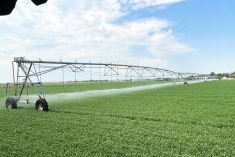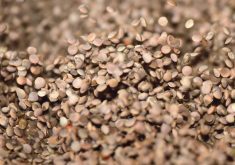Despite industry claims of higher yields from biotech corn and soybeans, much of the increase can be tied to other improvements, according to a study released April 14.
The Union of Concerned Scientists said its review found genetically engineered herbicide-tolerant soybeans and corn did not increase yields compared with conventional methods. Still, farmers embraced the technology partly because of lower energy costs and convenience associated with applying pesticides.
It also found BT corn contributed about 3.3 per cent of the estimated 28 per cent increase in corn yields since it was made available commercially in 1996. BT crops are resistant to certain insects.
Read Also

‘Millions will die’: Foodgrains Bank faces $2.7B federal funding threat
Foodgrains Bank warns $2.7B aid cut triggers a humanitarian crisis, risking global hunger relief and 40 per cent of its funding.
“Genetic engineering, while it’s been good for some individual farmers, and great for the companies, really has not been very productive in terms of improving yields,” said Doug Gurian-Sherman of UCS, who authored the report.
Instead, the study found much of the jump in yields can be attributed to successes in traditional breeding or conventional agriculture improvements such as more crop rotations and more efficient irrigation and fertilizer use.
The Biotechnology Industry Organization, which represents major firms involved in producing genetically engineered crops, noted that overall corn yields have increased 36 per cent and soybeans 12 per cent since the biotech crops were introduced.
“It’s absurd to deny biotechnology’s contribution, among other factors, to increased crop production,” said Sharon Bomer Lauritsen, an executive vice-president at BIO.














